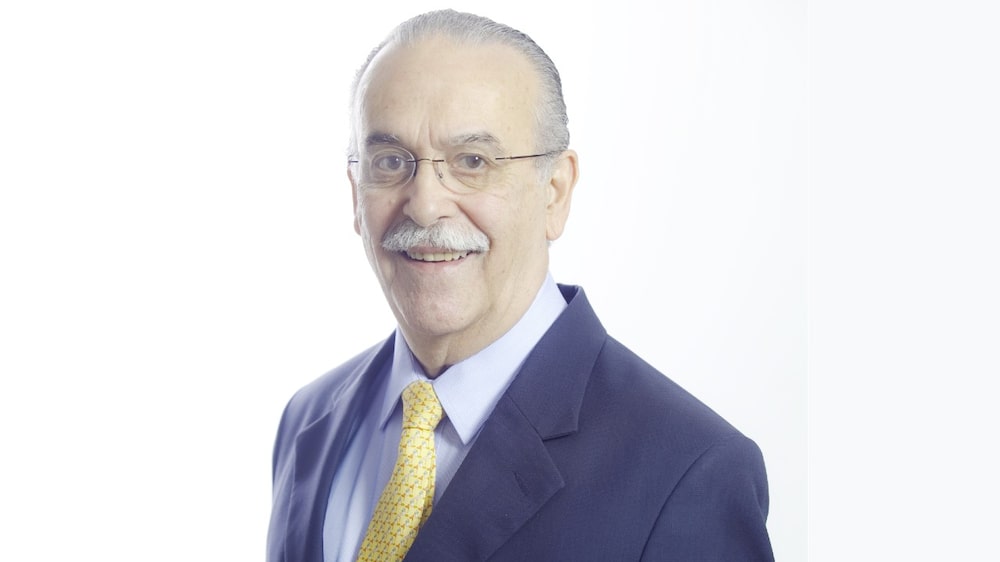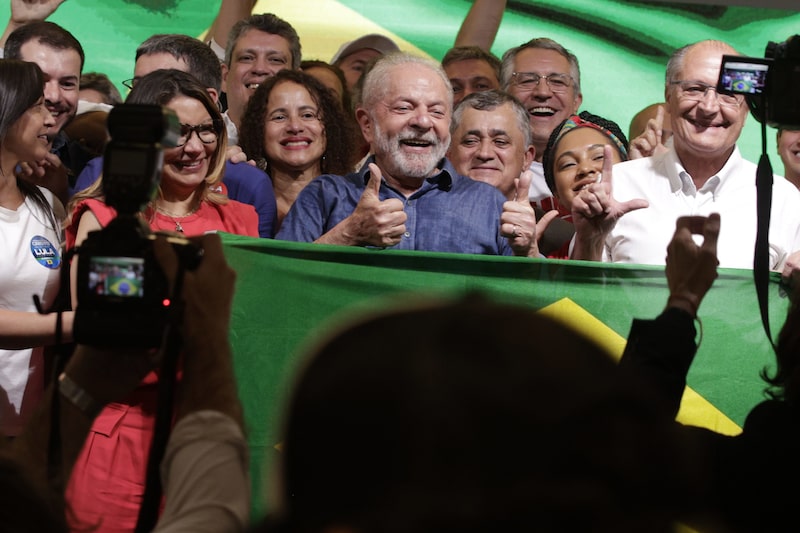Bloomberg Línea — Brazil’s President-elect Luiz Inácio Lula da Silva and his economic team will receive a “real” cursed inheritance when they take office on January 1, according to economist José Roberto Mendonça de Barros, a partner and founder of MB Associados, an economics consultancy.
The term “herança maldita” (’a cursed heritage’) refers to a frequent criticism made by members of the Lula’s Workers’ Party PT during his first administration (2003 to 2007) when referring to the economic policy inherited from former president Fernando Henrique Cardoso.
In an interview with Bloomberg Línea, Barros said that now, during the government transition, it will be possible to have a clear idea of the expenses that will have to be included in the 2023 budget, among them the maintenance of the Brazil Aid social assistance program at the minimum value of 600 reais ($117) and other campaign promises by Lula, such as the adjustment of the minimum wage above inflation, as well as tax waivers introduced by the government of President Jair Bolsonaro.
One of Lula’s toughest decisions, according to Barros, will be to define what to do about the federal tax exemption on fuel, which alone represents a tax waiver of about 50 billion reais ($9.76 billion).
Like other financial market economists, Barros believes that the new Lula administration will need a kind of “license” or waiver to accommodate expenditure that was not foreseen and that may exceed the limit of the spending cap rules.
According to the economist, more than defining the names of the new economic team, the challenge of the Lula government will be to have a new fiscal rule with “credibility” that indicates a sustained fiscal balance in the long term.
“The market is desperate to know what the lineup [of the ministerial team] is. But the most important thing is the content of the proposition, to put together a set of proposals to make some non-explosive performance feasible in next year’s budget and, at the same time, to develop and propose a fiscal rule and other actions that allow for a sustained resumption of growth starting in 2024, 2025, 2026″, Mendonça de Barros says, and who was secretary of economic policy at Brazil’s Finance Ministry during the first term of Fernando Henrique Cardoso, between 1995 and 1998.
The following interview has been edited for length and clarity:
Bloomberg Línea: What are the economic challenges that the government of Lula will face?
José Roberto Mendonça de Barros: There are two distinct problems that need to be solved simultaneously for this program to work. The first concerns the 2023 budget. This year, fiscal policy was submitted to the reelection project in a populist way as never before. There are doubts about how much this represents. There are figures ranging from 100 billion to 400 billion reais ($19.5 billion to $78.3 billion). It puts pressure for the coming year on postponed, necessary, and indispensable expenditure that is outside the budget. And a good part of that is outside the ceiling, which, for better or for worse, is still the current rule.
There is no way to solve this instantly. You will have to have a waiver, or a license, of at least 100 billion reais, beyond what would be the ceiling. Otherwise, there is no way to do it.
The second problem is that Brazil has been without growth for more than a decade. It is not a problem of this government that is leaving. It started in 2014. But even in this government: if 2022 shows a GDP growth that is projected at just above 2.5%, the per capita income from 2019 to 2022 will have grown only 0.4% per year. That’s nothing.
Before that it was worse. During the Dilma period (2011-2016) growth was negative. And it is not by chance that we have seen a visible increase in poverty, in inequality. The most pressing demand is the sustainable resumption of growth.
The market is desperate to know what is the line-up [of Lula’s ministerial team]. But the most important thing is the content of their proposal. It is to put together a set of proposals to make some non-explosive performance feasible in next year’s budget and, at the same time, to develop and propose a fiscal rule and other actions that allow for a sustained resumption of growth starting in 2024, 2025, 2026.
This is the fundamental challenge that is posed. It is possible to face it successfully, but it will not be easy. This is what the rest of the world, the markets are interested in, and it will have to be defined in the coming months.
What would be an adequate new fiscal rule in your view?
More than adequate, it has to be seen as credible. It can be very sophisticated. But if it is an ‘exogenous hexagonal band’, something exotic, it will not work. It can be a primary surplus rule. You can try a way to recover the ceiling itself. The important thing here is not the rule itself, but the credibility of the rule.
The markets here and abroad are very pragmatic. The objective of the fiscal rule is not to let the debt/GDP ratio get out of control. That is what you have to keep in mind. That is what makes rolling over the debt a reasonable thing. We had an example recently, which was the wreck of Liz Truss, the former British prime minister. The train wreck took place in 24 hours. She proposed a deficit without funding. The market saw it as impossible and then it was over. It was a no-go.
That said, this will not eliminate difficult decisions. For example, federal taxes on fuel were zeroed out until the end of the year. How will this look next year? In the case of state taxes, it’s up to the supreme court. But it is also in play.

The budget proposal of the Bolsonaro government foresees the exemption of federal taxes next year.
That’s right. But then there is that hole. This alone is 50 billion reais. And we also have to see how it will be done. What is certain is that, besides proposing a fiscal rule, it is necessary to propose a license. Because you can’t fix the ceiling just like that. The Lula government will have to evaluate the volume of this and what has to be turned back in terms of taxes, benefits, in order to be able to close this account. This is the immediate challenge, everyone agrees. And this is the challenge of the year.
How can we build this credibility now?
Brazil has already shown that if it has a minimum of credibility it is possible to move forward little by little. Of course, this will depend on President Lula. But I don’t think it is impossible.
We have to recall that the legacy [Lula inherits] will be a cursed one indeed. The other time [in the first Lula administration], it was just soft talk. This time it is for real. The inheritance is a very bad inheritance. The ease with which taxes were lowered. I think it is temerity.
It is easy to get applause from business leaders. Lower tax. Now, this was done in a period of enormous growth in tax collection that should not be repeated. This is a universal consensus. The international scenario next year will be very difficult. Commodity prices will fall. International trade will be more restricted. And there will not be the phenomenal base of tax collection, when the sale value of commodities in reais exploded.
I would venture to say that the markets will show good will if the program is minimally well organized by a person with credibility, and that it is adequately discussed in Congress so that it doesn’t have a problem during its passage through the legislature.
How can Lula balance the aim of maintaining fiscal responsibility and making investments for more sustained growth?
The elected government will be able to do at least three things that contribute to an improvement in the economic environment and even in private investments. The first of these is a drastic reduction of all illegal activity in the Amazon forest and an environmental policy that allows the Brazilian government to resume dialogue with the governments of the world as a whole.
A proposal that not only takes us out of this pariah situation from the point of view of foreign policy, but that avoids restrictions on Brazilian exports, which are increasingly consolidated, and that allows the release of a large volume of financing for projects in Brazil.
The first indicator of this is Norway saying that it will once again release resources that have been blocked since the beginning of this government. It is perfectly plausible and feasible that we will have an increase in investments from companies that practice ESG principles starting next year. This does not require reform in Congress and does not require fiscal resources.
In addition, right from the start, we can have at least two more things: a decent Ministry of Education. And a constructive proposition in science and technology, including avoiding the intentional scrapping of universities, especially the federal ones.
Without education and science there is no development. Agribusiness itself is a clear example of this. The improvement in education, in science and technology, and in the environment in general, and in particular the Amazon issue, allows for this decompression. It brings a constructive international posture and attracts investments.
What are the lessons that the Lula administration could learn from mistakes in the conduct of economic policy, which Lula’s Workers’ Party itself also committed?
The most important thing, and this will be a great test, is not to repeat what was done after 2009, 2010, with the so-called “new economic matrix”. This is the mother of all the mistakes the PT made. That vision that the state is the growth driver. Of national champions. Exaggerated protectionism. Expansion of public spending, believing that the increase in revenue will cover expenses. It does not. It never does. It opened a hole that had no limits. Then came inflation. The story is well known.
The state always has an important role in the economy. But it is not possible, in my opinion, to repeat the idea that the state will do everything, as was attempted with the new economic matrix. If there is any similarity in the proposals to come, we will get off to a very bad start. You can’t go anywhere near a deal like this. And I hope this is absolutely clear.
During the campaign, did you see signs that this will not happen again?
During the campaign, little was said. One characteristic of this campaign is that from the point of view of content, little was discussed. That is why everyone is keeping an eye on what is going to be said. It can’t take too long to have names and a minimum of proposals that don’t sound like generalities. Because the inauguration is right at the beginning of January. You have to make a transition, but a very quick transition.
From a political point of view, how do you analyze Lula’s victory in the second round of the elections?
When the campaign began, the proposal from around the PT and Lula was to run with a leftist coalition. Halfway through, and particularly after the first round, there was a migration to a center-left coalition.
This did not come from the president. It was the forces from the center, from civil society, that realized the importance of strengthening a democratic proposal. There was adhesion from the most varied groups in society toward this candidacy, so that the nature of the proposal changed.
It is a center-left coalition that has as its main objective the maintenance of democratic rules intact. Nothing symbolizes this more than Simone Tebet’s accession and the role she played. It opens an opportunity to have a government bringing together the typical groups of the so-called New Republic, the one that came right after the 1988 Constitution, with a new generation. Simone is just one of the examples. Eduardo Leite, and so on.
Only the future will tell what will come. But as long as this coalition translates into a reasonable platform, there is a great possibility that we will have a transitional government, and bring back the possibility of sustained growth.
Translated from the Portuguese by Adam Critchley






